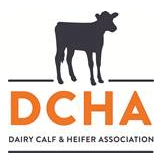
 The goal of a heifer nutrition program is to allow each calf the opportunity to maximize nutrient intake of protein and energy in the appropriate ratio in order to optimize its growth rate, health and future productivity, without over-conditioning.
The goal of a heifer nutrition program is to allow each calf the opportunity to maximize nutrient intake of protein and energy in the appropriate ratio in order to optimize its growth rate, health and future productivity, without over-conditioning.A good nutrition program accompanied by timely management practices is critical to the success of reaching that goal. After all, these are the tools that enable a calf to reach its genetic potential and enter the milking herd at the proper size and maturity to reach peak lactation performance.
However, seasonal challenges like heat stress can quickly derail nutrition programs if dairies don't take timely steps to keep programs on track.
Heat stress struggles
For example, as with adult animals during periods of heat stress, calf feed intake drops and maintenance energy needed for the calf to help cool itself is estimated to increase by 20% to 30%.1
Heat stress puts calves in a catch-22 situation.
Calves are uncomfortable due to the high temperatures and that causes a reduction in feed intake, according to experts at Alabama A&M University. At the same time, calves' bodies require more maintenance to cool them off-which often results in a decrease in average daily gain.2
Calves sometimes experience compensatory growth that allows them to "catch up," but if they are neglected during critical times-such as during heat stress-they may not experience this growth spurt. The reduced growth rates can haunt you later in your calves' lives by increasing time to puberty, delaying breeding and increasing calving age.2
In addition, although calves may experience compensatory gain at a later age, their body composition will differ from calves with normal growth patterns. The calves that did not gain weight properly will be smaller in stature with a higher percentage of body fat. Higher growth rates the first 50 days of life set the stage for better feed efficiency and production while lowering the risk of adverse health events.
Management solutions
Use the following tips to help minimize heat stress effects to calves and keep your nutrition program-and heifer growth-on target this summer:
- Increase water availability to prevent dehydration and perhaps increase starter intake. Use solid dividers between buckets to prevent water from being slopped into the bucket containing the starter ration. Replace soiled water frequently and provide fresh grain daily.2
- Make housing adjustments and other changes that lower the ambient temperature to help prevent elevated calf temperatures. If housed outdoors, calves should be able to move out of the elements and away from drafts.3
- Perform stressful activities (such as moving, handling or vaccinating) early in the morning.
- Provide shade to hutches-add supplemental shading if needed.
- Promote good airflow in and around hutches. In enclosed facilities, if natural cross-ventilation is not possible, then a total air exchange every two minutes through a mechanized system is a must.3
- Control flies. Implement practices to breakup fly life cycles.
6.21.2013